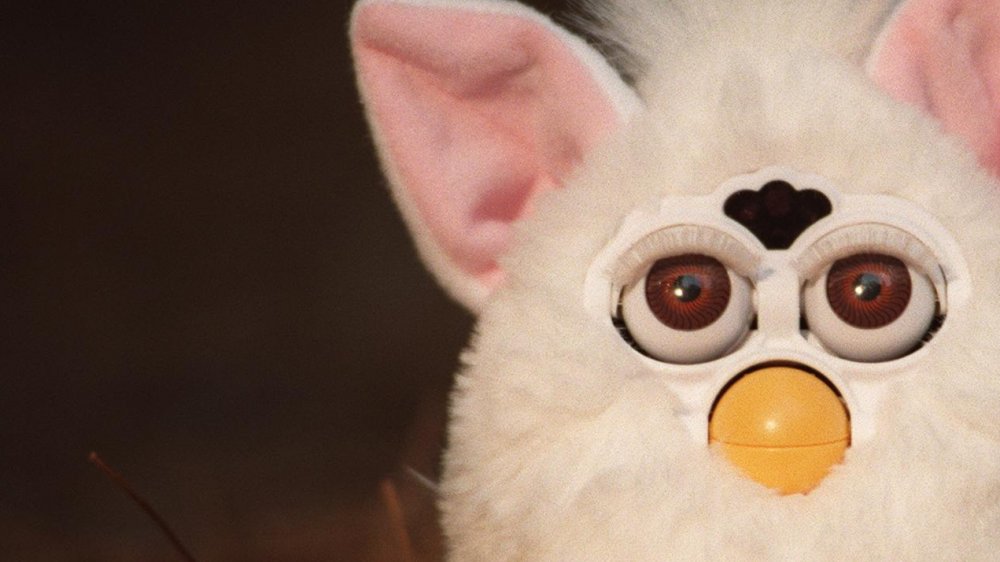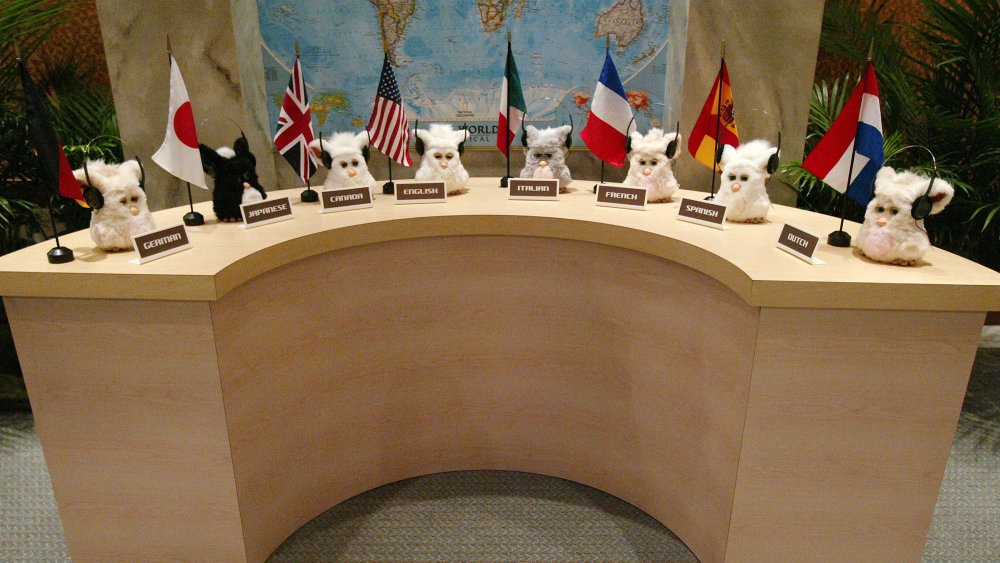The Real Reason The NSA Once Banned Furbies
The late 1990s were a magical time. Prosperity abounded, the cast of Friends could still, with astonishing regularity, be found in the same room together, and the Spice World turned ever closer to a bright and promising new Willenium.
But all was not well in America, and the astute observer of history will note that there was a dire threat lurking just over the horizon. Luckily, as the BBC pointed out at the time, the United States National Security Agency was on top of it, and in January of 1999, they made their move, officially banning Furbies from NSA property.
It's true. For a hot minute, the NSA headquarters in Fort Meade, Maryland was considered a no-fly zone for the hot Christmas purchase of 1998. The reason, surprisingly, had nothing to do with those lifeless black eyes, like a doll's eyes, or the way that when they come at you, they don't seem to be livin' until they bite you and those black eyes roll over white, and then...
No, it was because the agency tasked with defending our nation and securing our future couldn't be bothered to crack a toy potato bird open and see what was inside.
Out of the frying pan, into the fur
The concerns, it seems, stemmed from the advertising. If you were a kid in America at the time, you'll probably remember that Furbies were touted as having the ability to learn English over time with the help of you, their benevolent master. The idea was that the dolls would listen to their owners and slowly begin to replace their baby-talk native tongue with a sophisticated Western lexicon of words like "yes" and "hurray" and, if you had an older brother, "butts."
It was a sham, of course. Technologically speaking, a functioning A.I. would've been tough to cram into a $35 shell during the back nine of the Clinton administration. In reality, Furbies were programmed to start out speaking a few nonsense phrases, then slowly replace them with simple English as time went on.
The NSA, apparently, didn't check in on this, and concerns that the critters could listen in on confidential conversations and then parrot them back led to an agency-wide Furby ban. After several months and repeated assurances by Tiger Electronics that their product wasn't working for the Kremlin, the ban was lifted. But not, as Wired reported, before NASA had also vetoed the creatures, nipping in the bud any chances of the Furby-on-the-Nostromo scenario we all desperately wanted.

